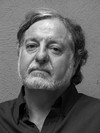José Casanova
José Casanova is Professor of Sociology and Senior Fellow at the Berkley Center for Religion, Peace, and World Affairs at Georgetown University, where he heads the Program on Religion, Globalization, and the Secular. Previously he served as Professor of Sociology at the New School for Social Research in New York from 1987 to 2007 and has held visiting appointments at prominent American and European universities. He has published widely in the areas of sociological theory, religion and politics, transnational migration, and globalization. His best-known work, Public Religions in the Modern World (Chicago, 1994) has become a modern classic in the field and has been translated into various languages, including Japanese, Arabic, and Turkish and is forthcoming in Indonesian, Farsi, and Chinese. He is also the author of Europa’s Angst vor der Religion (Berlin U.P., 2009) and Genealogías de la Secularización (Barcelona: Anthropos, 2012). He is the recipient of the 2012 Salzburger Hochschulwochen Theologischer Preis.
Citizenship Lecture June 29, 6pm | Campus Griebnitzsee, House 6, H01
Religious and Secular Dynamics in Post-Soviet Societies: East Germany, Poland, Ukraine, and Russia
The dismantling of aggressive secularist soviet-type regimes after the fall of the Berlin Wall allows a comparative analysis of divergent religious dynamics throughout the region and the testing of competing paradigms: The traditional European paradigm of secularization, the American paradigm of competitive religious markets, and the revisionist paradigm of global de-secularization. East Germany and Poland show practically no religious change after the transition: East Germany shows no evidence of religious growth, while Poland shows no evidence of significant religious decline. Ukraine and Russia show clear evidence of religious revival after communism, but with very different dynamics and in different directions. None of the competing general paradigms can account for these diverse post-communist religious dynamics.

